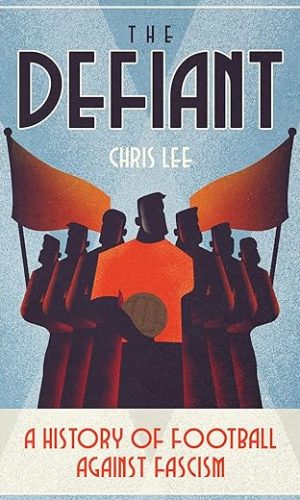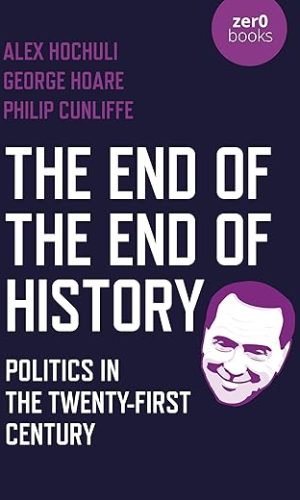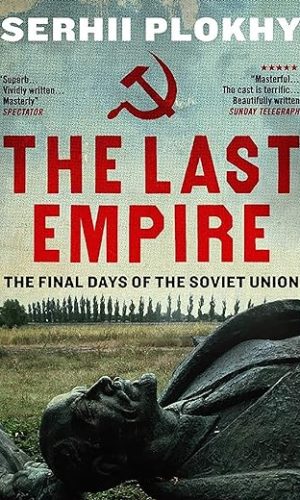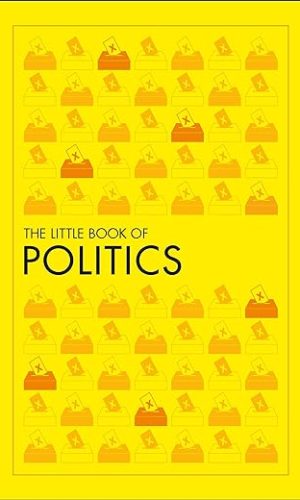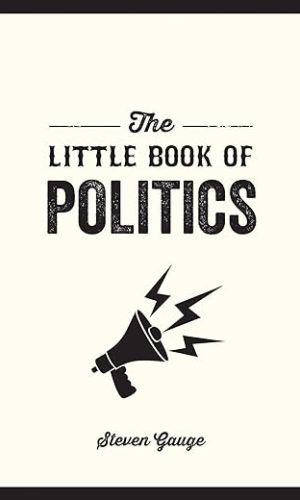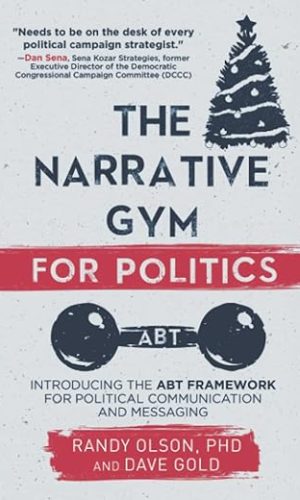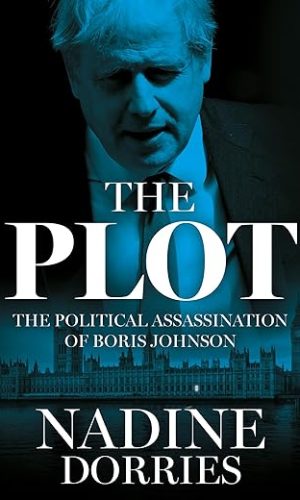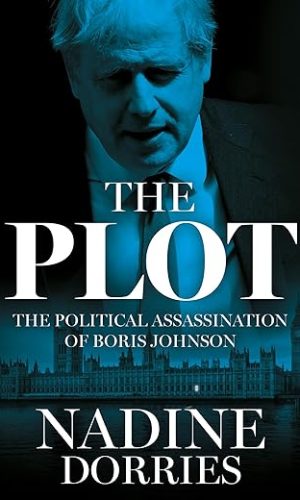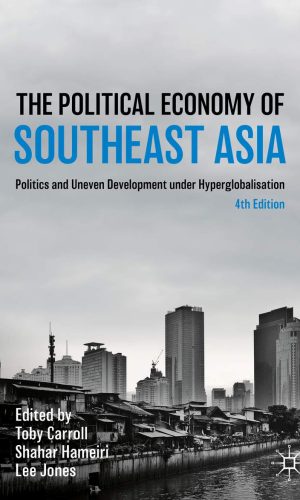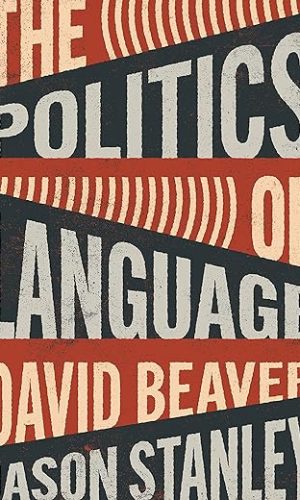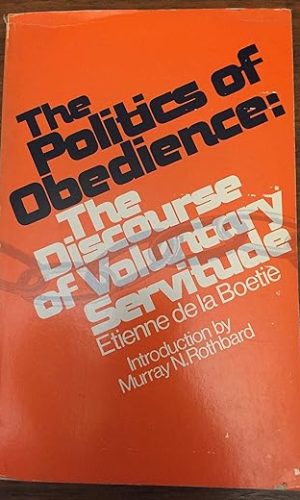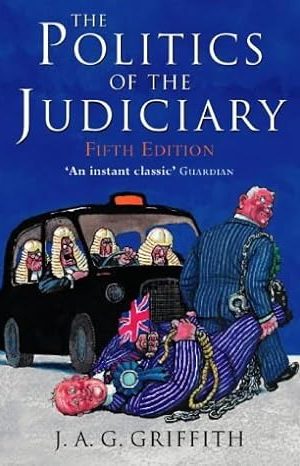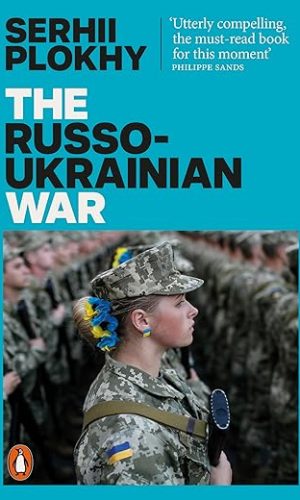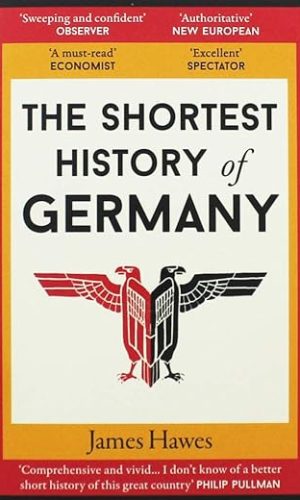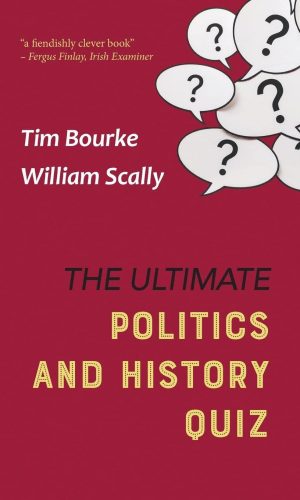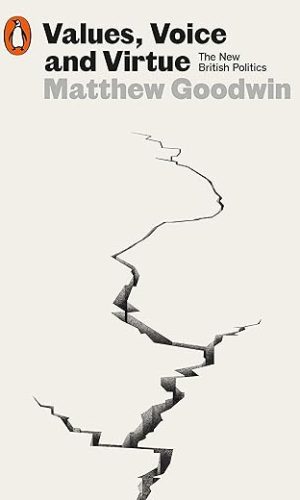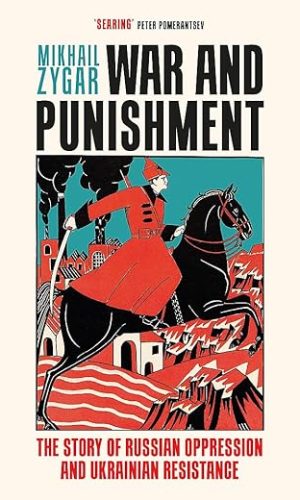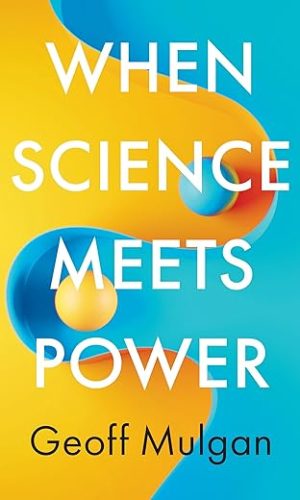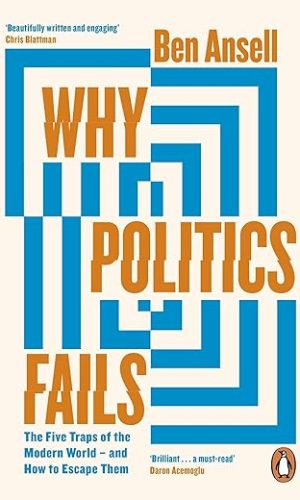Political Science & Ideology
-
The Defiant: A History of Football Against Fascism
The Defiant: A History of Football Against Fascism uncovers the role that footballers and fans have played in the fight against fascism and the far right. Follow the path of football activism from the turbulent 1920s to the culture wars of the 21st century. What role did footballers play in World War Two? How did a Portuguese Cup Final help bring down Western Europe’s longest-running dictatorship? What impact did the football community have in bringing the atrocities of Latin America’s cruellest dictators to global attention? Football historian and author Chris Lee shines a spotlight on the roles of players, fans, coaches and officials in the fight against the dictatorships of Mussolini, Hitler, Franco, Salazar and authoritarian states in Latin America, bringing us an intriguing cast of rebels, partisans, spies and activists. Featuring interviews with leading authors and academics, fans and progressive football clubs, The Defiant shows that football and politics cannot be separated and asks what the future holds.Read more
£9.50£12.30 -
The Defiant: A History of Football Against Fascism
The Defiant: A History of Football Against Fascism uncovers the role that footballers and fans have played in the fight against fascism and the far right. Follow the path of football activism from the turbulent 1920s to the culture wars of the 21st century. What role did footballers play in World War Two? How did a Portuguese Cup Final help bring down Western Europe’s longest-running dictatorship? What impact did the football community have in bringing the atrocities of Latin America’s cruellest dictators to global attention? Football historian and author Chris Lee shines a spotlight on the roles of players, fans, coaches and officials in the fight against the dictatorships of Mussolini, Hitler, Franco, Salazar and authoritarian states in Latin America, bringing us an intriguing cast of rebels, partisans, spies and activists. Featuring interviews with leading authors and academics, fans and progressive football clubs, The Defiant shows that football and politics cannot be separated and asks what the future holds.Read more
£9.50£12.30 -
The Dialectic Is in the Sea: The Black Radical Thought of Beatriz Nascimento
Collected writings by one of the most influential Black Brazilian intellectuals of the twentieth century
Beatriz Nascimento (1942–1995) was a poet, historian, artist, and political leader in Brazil’s Black movement, an innovative and creative thinker whose work offers a radical reimagining of gender, space, politics, and spirituality around the Atlantic and across the Black diaspora. Her powerful voice still resonates today, reflecting a deep commitment to political organizing, revisionist historiography, and the lived experience of Black women. The Dialectic Is in the Sea is the first English-language collection of writings by this vitally important figure in the global tradition of Black radical thought.
The Dialectic Is in the Sea traces the development of Nascimento’s thought across the decades of her activism and writing, covering topics such as the Black woman, race and Brazilian society, Black freedom, and Black aesthetics and spirituality. Incisive introductory and analytical essays provide key insights into the political and historical context of Nascimento’s work. This engaging collection includes an essay by Bethânia Gomes, Nascimento’s only daughter, who shares illuminating and uniquely personal insights into her mother’s life and career.
Read more
£9.60 -
The End of the End of History; Politics in the Twenty-First Century
‘It’s been a long time since a text was so useful in helping me think through our present moment and my role within it. The End of The End of History is a clear, powerful and panoramic analysis of our world at the dawn of the 2020s.’ Vincent Bevins, author, The Jakarta Method
The End of History is over. The idea that Western liberal democracy was the final form of human government has been exposed as bluster: the old order is crumbling before our eyes. Angry anti-politics have arisen to threaten political establishments across the world. Elites have fallen into hysteria, blaming voters, populism, Putin, Facebook anyone but themselves. They are suffering from Neoliberal Order Breakdown Syndrome. Emerging from four years of interviews and debates on the popular global politics podcast Aufhebunga Bunga, The End of the End of History examines how the political consequences of the 2008 financial crisis have come home to roost. If Trump and Brexit shattered the liberal-democratic consensus in 2016, then the global pandemic of 2020 put a final end to the End of History. Politics is back, but its stranger than ever.Read more
£10.70£12.30 -
The Fighter of Auschwitz: The incredible true story of Leen Sanders who boxed to help others survive
**A SUNDAY TIMES BESTSELLER**‘He had the dream again last night… He taps the gloves of his unbeaten Polish opponent. There are rumours that the loser will be sent to the gas chamber.’
In 1943, the Dutch champion boxer, Leen Sanders, was sent to Auschwitz. His wife and children were put to death while he was sent ‘to the left’ with the others who were fit enough for labour. Recognised by an SS officer, he was earmarked for a ‘privileged’ post in the kitchens in exchange for weekly boxing matches for the entertainment of the Nazi guards. From there, he enacted his resistance to their limitless cruelty.
With great risk and danger to his own life, Leen stole, concealed and smuggled food and clothing from SS nursing units for years to alleviate the unbearable suffering of the prisoners in need. He also regularly supplied extra food to the Dutch women in Dr. Mengele’s experiment, Block 10. To his fellow Jews in the camp, he acted as a rescuer, leader and role model, defending them even on their bitter death march to Dachau towards the end of the war.
A story of astonishing resilience and compassion, The Fighter of Auschwitz is a testament to the endurance of humanity in the face of extraordinary evil.
Read more
£7.90£8.50 -
The Great Awakening: Defeating the Globalists and Launching the Next Great Renaissance
In The Great Awakening: Defeating the Globalists and Launching the Next Great Renaissance, the most persecuted man on Earth, Alex Jones, gives you the good news about the failing plans of the globalists to control humanity.The expression “Get woke, go broke” has entered the common lexicon as we’ve seen company after company invoke the false gods of diversity, equity, and inclusion to their financial demise. But this surface discussion masks a much darker truth. What we are witnessing is nothing less than the failed plans of social Darwinists to capture free market capitalism and turn it toward their fascist aims of controlling and depopulating the globe.
Working with New York Times bestselling author Kent Heckenlively, Jones masterfully gives you the deeper discussion about such hot button topics as the truth behind the globalists plans for artificial intelligence (AI), the central bank digital currency, social credit scores, Big Tech tyranny, censorship, fifteen-minute cities, the unholy alliance between big business and big government, the military-intelligence-industrial complex—which is hell-bent on eternal war—and the all-out assault on free speech and the Second Amendment.
The good news is that these plans are destined to fail, if we wake up to the anti-human future the globalists have planned for us. The globalists hate freedom, and what they hate the most is the greatest freedom document in human history, the United States Constitution. Jones does not shy away from the darker parts of American history—the way we have been systematically deceived by the intelligence agencies since their assassination of President John F. Kennedy—but he provides example after example of people who have broken free from the matrix of lies to tell the truth.
The people the globalists fear the most are the members of their own systems of control, who wake up and then decide to act against the machine. The globalists believe they’ve planned for every possible contingency, but they hadn’t counted on the conscience and love of truth, which lives in the souls of good people.
St. Augustine once wrote: “The truth is like a lion; you don’t have to defend it. Let it loose; it will defend itself.” No figure in our modern times has roared louder against the enemies of freedom than Alex Jones. In the calm and dispassionate style that made his first book, The Great Reset: And the War for the World, such a smash hit, Alex lays out the flaws in the plans of the globalists and how they seek to create a world in direct opposition to God’s plans for our glorious human future. But God consistently works His will in our world, even through imperfect individuals like Donald Trump, Alex Jones, or you.
If you want to read one book this year to understand your world and help lead humanity to the next great human renaissance, you need to order this book today.
Read more
£19.30£22.60 -
The Last Empire: The Final Days of the Soviet Union
BY THE AUTHOR OF CHERNOBYL: HISTORY OF A TRAGEDY, WINNER OF THE BAILLIE GIFFORD PRIZE 2018WINNER OF THE PUSHKIN HOUSE RUSSIAN BOOK PRIZE 2015
On Christmas Day 1991 Mikhail Gorbachev resigned as president of the Soviet Union. By the next day the USSR was officially no more and the USA had emerged as the world’s sole superpower. Award-winning historian Serhii Plokhy presents a page-turning account of the preceding five months of drama, filled with failed coups d’état and political intrigue.
Honing in on this previously disregarded but crucial period and using recently declassified documents and original interviews with key participants, he shatters the established myths of 1991 and presents a bold new interpretation of the Soviet Union’s final months. Plokhy argues that contrary to the triumphalist Western narrative, George H. W. Bush desperately wanted to preserve the Soviet Union and keep Gorbachev in power, and that it was Ukraine and not the US that played the key role in the collapse of the Soviet Union. The consequences of those five months and the myth-making that has since surrounded them are still being felt in Crimea, Russia, the US, and Europe today.
With its spellbinding narrative and strikingly fresh perspective, The Last Empire is the essential account of one of the most important watershed periods in world history, and is indispensable reading for anyone seeking to make sense of international politics today.
Read more
£0.90 -
The Little Book of Politics (Big Ideas)
This book is the perfect pocket-sized introduction to politics and political thought throughout history.
From the origins of democracy to Machiavelli’s cunning statecraft, and from Rousseau’s “social contract” to the American Declaration of Independence, Marxist communism, the dawn of populism, and identity politics, The Little Book of Politics examines the philosophies behind the different political beliefs and methods of government used around the world over the course of human history.
Packed with infographics and flowcharts that explain complex concepts in a simple but exciting way, The Little Book of Politics offers you a combination of clear text and hard-working infographics in a portable format that is perfect for reading on the go.
Read more
£7.60£9.50The Little Book of Politics (Big Ideas)
£7.60£9.50 -
The Little Book of Politics: A Pocket Guide to Parties, Power and Participation
Worried about the world and want to make a difference? Inspired by a new political voice or enraged by an old one? Whether you’re taking your first tentative steps into the world of politics or thinking about getting out and knocking on some doors, this clear and concise guide is for you. Providing a whistle-stop tour through the corridors of power and explaining the basics of our parliamentary democracy, it will INSPIRE YOU TO TAKE ACTION.Read more
£4.70 -
The Narrative Gym for Politics: Introducing the ABT Framework for Political Communication and Messaging
Introducing the ABT (And, But, Therefore) narrative framework; a simple three-word tool for political communications and messaging that cuts through the noise of today’s information-saturated society. It is powerful AND may seem obvious, BUT most of your opponents don’t know how to use it, THEREFORE … let us fill you in on this secret little communications weapon.Read more
£6.30 -
The Nostalgia Nerd’s Retro Tech: Computer, Consoles & Games (Tech Classics)
The perfect Father’s Day gift.Remember what a wild frontier the early days of home gaming were? Manufacturers releasing new consoles at a breakneck pace; developers creating games that kept us up all night, then going bankrupt the next day; and what self-respecting kid didn’t beg their parents for an Atari or a Nintendo? This explosion of computers, consoles, and games was genuinely unlike anything the tech world has seen before or since.
This thoroughly researched and geeky trip down memory lane pulls together the most entertaining stories from this dynamic era, and brings you the classic tech that should never be forgotten.
Read more
£10.40£18.00 -
The Oxford History of World War II
Histories you can trust.World War Two was the most devastating conflict in recorded human history. It was both global in extent and total in character. It has understandably left a long and dark shadow across the decades. Yet it is three generations since hostilities formally ended in 1945 and the conflict is now a lived memory for only a few. And this growing distance in time has allowed historians to think differently about how to describe it, how to explain its course, and what subjects to focus on when considering the wartime experience.
For instance, as World War Two recedes ever further into the past, even a question as apparently basic as when it began and ended becomes less certain. Was it 1939, when the war in Europe began? Or the summer of 1941, with the beginning of Hitler’s war against the Soviet Union? Or did it become truly global only when the Japanese brought the USA into the war at the end of 1941? And what of the long conflict in East Asia, beginning with the Japanese aggression in China in the early 1930s and only ending with the triumph of the Chinese Communists in 1949?
In The Oxford History of World War Two a team of leading historians re-assesses the conflict for a new generation, exploring the course of the war not just in terms of the Allied response but also from the viewpoint of the Axis aggressor states. Under Richard Overy’s expert editorial guidance, the contributions take us from the genesis of war, through the action in the major theatres of conflict by land, sea, and air, to assessments of fighting power and military and technical innovation, the economics of total war, the culture and propaganda of war, and the experience of war (and genocide) for both combatants and civilians, concluding with an account of the transition from World War to Cold War in the late 1940s. Together, they provide a stimulating and thought-provoking new interpretation of one of the most terrible and fascinating episodes in world history.
Read more
£11.10£12.30The Oxford History of World War II
£11.10£12.30 -
The Plot: The Political Assassination of Boris Johnson
‘A riveting read that skips along at pace. Illuminating and concerning, it lifts the lid on the tawdry world of Westminster powerbroking’ Tim Shipman, The Times
The explosive behind-the-scenes account of the plot to bring down Boris Johnson
YOU THINK YOU LIVE IN A WORLD WHERE THE ELECTED ARE CHOSEN BY THE PEOPLE.
THINK AGAIN.
When Boris Johnson came to power in 2019, he did so with the largest Conservative majority since Margaret Thatcher. Rewriting the political map, he united a party and shattered Labour’s fabled red wall. And yet, just three years later, he was ousted by the same members who had once greeted his leadership so rapturously.
What had gone so wrong?
The Plot is the seismic, fly-on-the-wall account of how the saviour of the Conservative Party became a pariah. Told with unparalleled access, from multiple inside sources talking with astonishing candour, it reveals the shocking truth about powerful forces operating behind the scenes in the heart of Westminster and those who became the architects of a Prime Minister’s downfall.
This is the story of a damning trail of treachery and deceit fuelled by an obsessive pursuit of power, which threatens to topple the very fabric of our democracy.
Read more
£19.00£23.80 -
The Plot: The Political Assassination of Boris Johnson
‘A riveting read that skips along at pace. Illuminating and concerning, it lifts the lid on the tawdry world of Westminster powerbroking’ Tim Shipman, The Times
The explosive behind-the-scenes account of the plot to bring down Boris Johnson
YOU THINK YOU LIVE IN A WORLD WHERE THE ELECTED ARE CHOSEN BY THE PEOPLE.
THINK AGAIN.
When Boris Johnson came to power in 2019, he did so with the largest Conservative majority since Margaret Thatcher. Rewriting the political map, he united a party and shattered Labour’s fabled red wall. And yet, just three years later, he was ousted by the same members who had once greeted his leadership so rapturously.
What had gone so wrong?
The Plot is the seismic, fly-on-the-wall account of how the saviour of the Conservative Party became a pariah. Told with unparalleled access, from multiple inside sources talking with astonishing candour, it reveals the shocking truth about powerful forces operating behind the scenes in the heart of Westminster and those who became the architects of a Prime Minister’s downfall.
This is the story of a damning trail of treachery and deceit fuelled by an obsessive pursuit of power, which threatens to topple the very fabric of our democracy.
Read more
£19.00£23.80 -
The Political Economy of Southeast Asia: Politics and Uneven Development under Hyperglobalisation (Studies in the Political Economy of Public Policy)
‘This is not only the best collection of essays on the political economy of Southeast Asia, but also, as a singular achievement of the “Murdoch School”, one of the rarest of books that demonstrates how knowledge production travels across generations, institutions and time periods, thereby continually enriching itself. No course on Southeast Asia can afford to miss it as its core text.’ (Professor Amitav Acharya, American University, USA)‘This book – the fourth in a path-breaking series – demonstrates why a critical political economy approach is more crucial than ever for understanding Southeast Asia’s transformation. Across a wide range of topics, the book explains how capitalist development and globalisation are reshaping the societies, economies and politics of a diverse group of countries, casting light on the deep sources of economic and social power in the region. This is a book that every student of Southeast Asia needs to read.’ (Professor Edward Aspinall, Australian National University, Australia)
‘This book does what a work on political economy should do: challenge existing paradigms in order to gain a deeper understanding of the processes of social transformation. This volume is distinctive in three ways. First, it eschews methodological nationalism and focuses on how the interaction of national, regional, and global forces are shaping and reshaping systems of governance, mass politics, economies, labor-capital relations, migration, and gender relations across the region. Second, it is a bold effort to show how the “Murdoch School,” which focuses on the dynamic synergy of internal class relations and global capitalism, provides a better explanatory framework for understanding social change in Southeast Asia than the rival “developmental state” and “historical institutionalist” approaches. Third, alongside established luminaries in the field, it showcases the younger generation of political economists doing pathbreaking work on different dimensions of the political economy of the region.’ (Walden Bello, State University of New York at Binghamton, USA, and Former Member of the Philippines’ House of Representatives)
‘This very timely fourth edition explores Southeast Asia’s political economy within the context of hyperglobalisation and China’s pronounced social-structural impacts on international politics, finance and economics over the past decade and a half. The volume successfully adopts a cross-cutting thematic approach, while also conveying the diversity and divergences among the Southeast Asian states and economies. This will be an important resource for scholars of International Relations and Comparative Politics, who need to take an interest in a dynamic and increasingly significant part of Asia.’ (Professor Evelyn Goh, Australian National University, Australia)
“This ambitious collection takes a consistent theoretical approach and applies it to a thematic, comparative analysis across Southeast Asia. The yield is impressive: the social, political and economic forces constituting the current conjuncture are not simply invoked, they are thoroughly identified and explained. By posing the deceptively simple questions of what is happening and why, the authors demonstrate the reciprocal relation between theory-building and empirical inquiry, providing a model of engaged scholarship with global resonance. Bravo!’ (Professor Tania Li, University of Toronto, Canada)
‘Counteracting the spaceless and flattened geography of much literature on uneven development, this book delivers a forensic examination of the unevenness of geographical development in Southeast Asia and the relations of force shaping capital, state, nature and civil society. This is the most compelling theoretical and empirical political economy book available on Southeast Asia.’ (Professor Adam David Morton, U
Read more
£17.30 -
The Politics (Penguin Classics)
Raising questions that are as relevant to modern society as they were to the ancient world, Aristotle’s The Politics remains central to the study of political science millennia after its compilation. This Penguin Classics edition is translated from the Greek by T.A. Sinclair, revised and re-presented by Trevor J. Saunders.
In The Politics Aristotle addresses the questions that lie at the heart of political science. How should society be ordered to ensure the happiness of the individual? Which forms of government are best and how should they be maintained? By analysing a range of city constitutions – oligarchies, democracies and tyrannies – he seeks to establish the strengths and weaknesses of each system, and to decide which are the most effective, in theory and in practice. Like his predecessor Plato, Aristotle believed that the ideal constitution should be good in itself and in accordance with nature, and that it is needed by man – ‘a political animal’ – to fulfil his potential. A hugely significant work, which has influenced thinkers as diverse as Thomas Aquinas and Machiavelli, The Politics remains an outstanding commentary on fundamental political issues and concerns, and provides fascinating insights into the workings and attitudes of the Greek city-state.
The introductions by T.A. Sinclair and Trevor J. Saunders discuss the influence of The Politics on philosophers, its modern relevance and Aristotle’s political beliefs. This edition contains Greek and English glossaries, and a bibliography for further reading.
Aristotle (384-322BC) was born at Stagira, in the dominion of the kings of Macedonia. For twenty years he studied at Athens in the Academy of Plato. Some time later, became the tutor of young Alexander the Great. His writings, including De Anima, The Nicomachean Ethics, Poetics, and The Politics, profoundly affected the whole course of ancient and medieval philosophy.
If you enjoyed The Politics, you might like Plato’s Republic, also available in Penguin Classics.
Read more
£9.50£12.30The Politics (Penguin Classics)
£9.50£12.30 -
The Politics of Language
A provocative case for the inherently political nature of language
In The Politics of Language, David Beaver and Jason Stanley present a radical new approach to the theory of meaning, offering an account of communication in which political and social identity, affect, and shared practices play as important a role as information. This new view of language, they argue, has dramatic consequences for free speech, democracy, and a range of other areas in which speech plays a central role.
Drawing on a wealth of disciplines, The Politics of Language argues that the function of speech―whether in dialogue, larger group interactions, or mass communication―is to attune people to something, be it a shared reality, emotion, or identity. Reconceptualizing the central ideas of pragmatics and semantics, Beaver and Stanley apply their account to a range of phenomena that defy standard frameworks in linguistics and philosophy of language―from dog whistles and covert persuasion to echo chambers and genocidal speech. The authors use their framework to show that speech is inevitably political because all communication is imbued with the resonances of particular ideologies and their normative perspectives on reality.
At a time when democracy is under attack, authoritarianism is on the rise, and diversity and equality are being demanded, The Politics of Language offers a powerful new vision of the language of politics, ideology, and protest.
Read more
£33.30The Politics of Language
£33.30 -
The Politics of Obedience: The Discourse of Voluntary Servitude
States are more vulnerable than people think. They can collapse in an instant—when consent is withdrawn.This is the thesis of this thrilling book. Murray Rothbard writes a classic introduction to one of the great political essays in the history of ideas.In times when dictators the world over are falling from pressure from their own people, this book, written nearly 500 years ago, is truly the prophetic tract of our times.Étienne de La Boétie was born in Sarlat, in the Périgord region of southwest France, in 1530, to an aristocratic family, and became a dear friend of Michel de Montaigne. But he ought to be remembered for this astonishingly important essay, one of the greatest in the history of political thought. It will shake the way you think of the state. His thesis and argument amount to the best answer to Machiavelli ever penned as well as one of the seminal essays in defense of liberty.La Boétie’s task is to investigate the nature of the state and its strange status as a tiny minority of the population that adheres to different rules from everyone else and claims the authority to rule everyone else, maintaining a monopoly on law. It strikes him as obviously implausible that such an institution has any staying power. It can be overthrown in an instant if people withdraw their consent.He then investigates the mystery as to why people do not withdraw, given what is obvious to him that everyone would be better off without the state. This sends him on a speculative journey to investigate the power of propaganda, fear, and ideology in causing people to acquiesce in their own subjection. Is it cowardice? Perhaps. Habit and tradition. Perhaps. Perhaps it is ideological illusion and intellectual confusion.La Boétie goes on to make a case as to why people ought to withdraw their consent immediately. He urges all people to rise up and cast off tyranny simply by refusing to concede that the state is in charge.The tyrant has “nothing more than the power that you confer upon him to destroy you. Where has he acquired enough eyes to spy upon you, if you do not provide them yourselves? How can he have so many arms to beat you with, if he does not borrow them from you? The feet that trample down your cities, where does he get them if they are not your own? How does he have any power over you except through you? How would he dare assail you if he had no cooperation from you?”Then these inspiring words: “Resolve to serve no more, and you are at once freed. I do not ask that you place hands upon the tyrant to topple him over, but simply that you support him no longer; then you will behold him, like a great Colossus whose pedestal has been pulled away, fall of his own weight and break in pieces.”In all these areas, the author has anticipated Jefferson and Arendt, Gandhi and Spooner, and those who overthrew Soviet tyranny. The essay has profound relevance for understanding history and all our times.As Rothbard writes in his spectacular introduction, “La Boetie’s Discourse has a vital importance for the modern reader—an importance that goes beyond the sheer pleasure of reading a great and seminal work on political philosophy, or, for the libertarian, of reading the first libertarian political philosopher in the Western world. For La Boétie speaks most sharply to the problem which all libertarians—indeed, all opponents of despotism—find particularly difficult: the problem of strategy. Facing the devastating and seemingly overwhelming power of the modern State, how can a free and very different world be brought about? How in the world can we get from here to there, from a world of tyranny to a world of freedom? Precisely because of his abstract and timeless methodology, La Boétie offers vital insights into this eternal problem.”Read more
£4.30 -
The Politics of the Judiciary
This work presents the argument that given our legal system as it is now composed, the judiciary cannot act neutrally but instead must act politically. This edition has been updated to include material covering “Spycatcher”, the Guildford Four and Lord Denning.Read more
£4.40 -
The Russo-Ukrainian War: From the bestselling author of Chernobyl
CHOSEN AS A BOOK OF THE YEAR BY THE FINANCIAL TIMES AND TELEGRAPH
Do you know what is at stake in Ukraine? Urgent, compelling reading from the author of Chernobyl on the defining conflict of our times
On 24 February 2022, Russia stunned the world by launching an invasion of Ukraine. In the midst of checking on the family and friends who were now on the front lines of Europe’s largest conflict since the outbreak of the Second World War, acclaimed Ukrainian-American historian Serhii Plokhy inevitably found himself attempting to understand the deeper causes of the invasion, analysing its course and contemplating the wider outcomes.
The Russo-Ukrainian War is the comprehensive history of a war that has burned since 2014, and that, with Russia’s attempt to seize Kyiv, exploded a geo-political order that had been cemented since the end of the Cold War. With an eye for the gripping detail on the ground, both in the halls of power and down in the trenches, as well as a keen sense of the grander sweep of history, Plokhy traces the origins and the evolution of the conflict, from the collapse of the Russian empire to the rise and fall of the USSR and on to the development in Ukraine of a democratic politics.
Based on decades of research and his unique insight into the region, he argues that Ukraine’s defiance of Russia, and the West’s demonstration of unity and strength, has presented a profound challenge to Putin’s Great Power ambition, and further polarized the world along a new axis. A riveting, enlightening account, this is present-minded history at its best.
BEST BOOKS OF SUMMER 2023: FINANCIAL TIMES * THE TIMES * SUNDAY TIMES CULTURE * TLS
Read more
£9.00£10.40 -
The Shortest History of Germany: 2
Read in an afternoon. Remember for a lifetime.
In his acclaimed new bestseller, now in paperback, James Hawes tells the story of Europe’s most admired and feared country, from Julius Caesar to Angela Merkel. With more than 100 maps and images, this is a fresh, concise and entertaining attempt to answer the question: are the Germans really us, or them?
*240 PAGES. 100+ MAPS AND IMAGES. 2,000 YEARS OF GERMAN HISTORY.*Read more
£7.50£8.50The Shortest History of Germany: 2
£7.50£8.50 -
The Ultimate Politics and History Quiz
In the dark days of Covid time, confined to quarters in lockdown, the authors, William Scally and Tim Bourke retained their sanity by engaging in what proved to be an all-engrossing contest: devising a complex and broad-reaching series of questions that would brighten the pandemic days. The result was a slim volume that made a fine debut title.
Later, during 2022, Bourke and Scally reviewed and fully revised the first edition, eliminating certain material and introducing some 230 brand new questions and solutions. This culminated in the book you hold in your hand – a second edition boasting a generous make-over, with a broad range of updated puzzles for the discerning reader.
The Ultimate Politics and History Quiz contains five hundred thought-provoking queries, together with their exceptionally diverse solutions. The questions traverse the world of Irish and international politics and history, and while some of them are relatively straightforward, many pose quite the conundrum. The brain that likes a challenge will relish this book.
Tim Bourke and William Scally have both worked in various areas of industry, education and politics.
Read more
£10.40 -
Twilight of Democracy: The Failure of Politics and the Parting of Friends
A FINANCIAL TIMES, ECONOMIST AND NEW STATESMAN BOOK OF THE YEAR 2020
‘The most important non-fiction book of the year’ David Hare
In the years just before and after the fall of the Berlin Wall, people from across the political spectrum in Europe and America celebrated a great achievement, felt a common purpose and, very often, forged personal friendships. Yet over the following decades the euphoria evaporated, the common purpose and centre ground gradually disappeared, extremism rose once more and eventually – as this book compellingly relates – the relationships soured too.
Anne Applebaum traces this history in an unfamiliar way, looking at the trajectories of individuals caught up in the public events of the last three decades. When politics becomes polarized, which side do you back? If you are a journalist, an intellectual, a civic leader, how do you deal with the re-emergence of authoritarian or nationalist ideas in your country? When your leaders appropriate history, or pedal conspiracies, or eviscerate the media and the judiciary, do you go along with it?
Twilight of Democracy is an essay that combines the personal and the political in an original way and brings a fresh understanding to the dynamics of public life in Europe and America, both now and in the recent past.
Read more
£8.50£10.40 -
UK Politics Annual Update 2023
– Review all the developments relevant to A-level specifications in UK politics from the last year, with strong links between topics and focused suggestions for further reading
– Develop your confidence with expert analysis you can draw on both throughout your course and in the exams
– Enhance your knowledge of the news to build a bank of up-to-date examples linked to the specifications, helping you to develop persuasive arguments for your essays
– Use our updated exam skills feature to clarify how to use the information you have just learned in your examChapters:
– Think tanks: how do they operate and why are they controversial?
– Rights in context: do we need a British Bill of Rights?
– Political parties: are the Liberal Democrats re-emerging as a political force?
– Devolved and divided? The causes and consequences of Northern Ireland’s election
– The constitution: is the UK’s uncodified constitution working?
– Parliament and the prime minister: did parliament contribute to a prime minister’s demise?
– Prime minister and executive (1): Boris Johnson
– Prime minister and executive (2): Liz Truss
– Prime minister and executive (3): Rishi Sunak
– The Supreme Court: the impact of legislative reform and Lord Reed’s presidencyRead more
£10.40 -
US Politics Annual Update 2023
– Review all the developments relevant to A-level specifications in US politics from the last year, with strong links between topics and focused suggestions for further reading
– Develop your confidence with expert analysis you can draw on both throughout your course and in the exams
– Enhance your knowledge of the news to build a bank of up-to-date examples linked to the specifications, helping you to develop persuasive arguments for your essays
– Use our updated exam skills feature to clarify how to use the information you have just learned in your examChapters:
– The January 6 Committee
– ‘The legislative branch’: does Congress fulfil its legislative role adequately?
– ‘I control foreign policy’: has the president retained primacy?
– The Supreme Court 2021-22: has Chief Justice Roberts lost control of his Court?
– Abortion in the USARead more
£10.40 -
Values, Voice and Virtue: The New British Politics
*THE SUNDAY TIMES BESTSELLER*
*A Financial Times 2023 book to watch*‘Forceful … The fundamental thrust of Goodwin’s argument is right … a new centre ground of British politics is being formed – even if both parties have yet to fully comprehend it’ The Times
What has caused the recent seismic changes in British politics, including Brexit and a series of populist revolts against the elite? Why did so many people want to overturn the status quo? Where have the Left gone wrong? And what deeper trends are driving these changes?
British politics is coming apart. A country once known for its stability has recently experienced a series of shocking upheavals. Matthew Goodwin, acclaimed political scientist and co-author of National Populism, shows that the reason is not economic hardship, personalities or dark money. It is a far wider political realignment that will be with us for years to come. An increasingly liberalised, globalised ruling class has lost touch with millions, who found their values ignored, their voices unheard and their virtue denied. Now, this new alliance of voters is set to determine Britain’s fate.
Read more
£8.50£10.40 -
War and Punishment: The Story of Russian Oppression and Ukrainian Resistance
‘History is made up of myths,’ writes the renowned Russian dissident journalist Mikhail Zygar. ‘Alas, our myths led us to the fascism of 2022. It is time to expose them.’ Drawing from his perilous career investigating the frontiers of the Russian empire, Zygar reveals how 350 years of propaganda, bad historical scholarship, folk tales and fantasy spurred his nation into war with Ukraine.
How did a German monk’s fear of the Ottoman Empire drive him to invent the fiction of a united Russian world? How did corny spy novels about a ‘Soviet James Bond’ inspire Vladimir Putin to join the KGB? How did Alexander Pushkin’s admiration for a poem by Lord Byron end with him slandering the legendary chief of the Cossacks? And how did Putin underestimate a rising TV comic named Volodymyr Zelensky, failing to see that his satire had become deadly serious, and that his country would be a joke no longer?
A noted expert on the Kremlin with unparalleled access to hundreds of players in the current conflict – from politicians to oligarchs, gangsters to comedians (not least Zelensky himself) – Zygar chronicles the power struggles from which today’s politics grew, and digs out the essential truths from behind layers of seductive legend. By surveying the strange, complex record of Russo-Ukrainian relations, War and Punishment reveals exactly how the largest nation on Earth lost its senses. A work of history can’t undo the past or transform the present, but sometimes it can shape the future.
In fact, that’s how the story begins.
Read more
£15.30£20.90 -
When Science Meets Power
Science and politics have collaborated throughout human history, and science is repeatedly invoked today in political debates, from pandemic management to climate change. But the relationship between the two is muddled and muddied.
Leading policy analyst Geoff Mulgan here calls attention to the growing frictions caused by the expanding authority of science, which sometimes helps politics but often challenges it.
He dissects the complex history of states’ use of science for conquest, glory and economic growth and shows the challenges of governing risk – from nuclear weapons to genetic modification, artificial intelligence to synthetic biology. He shows why the governance of science has become one of the biggest challenges of the twenty-first century, ever more prominent in daily politics and policy.
Whereas science is ordered around what we know and what is, politics engages what we feel and what matters. How can we reconcile the two, so that crucial decisions are both well informed and legitimate?
The book proposes new ways to organize democracy and government, both within nations and at a global scale, to better shape science and technology so that we can reap more of the benefits and fewer of the harms.
Read more
£20.00£25.00When Science Meets Power
£20.00£25.00 -
Why Politics Fails: The Five Traps of the Modern World & How to Escape Them
From the 2023 Reith lecturer
Politics is failing us. This is why.
‘Brilliant . . . a must-read’ Daron Acemoglu, co-author of Why Nations Fail
When it comes to politics, there are five goals that voters generally agree upon. We all want a say in how we’re governed, to be treated equally, a safety net when times are hard, protection from harm and to be richer in the future. So, why does politics not deliver that?
The problem is each of these five goals results in a political trap. For example, we all want a say in how we’re governed, but it’s impossible to have any true ‘will of the people’. And we want to be richer tomorrow, but what makes us richer in the short run makes us poorer over the long haul.
In Why Politics Fails, award-winning Oxford professor Ben Ansell draws on examples from Ancient Greece through Brexit to vividly illustrate how we can escape these traps, overcome self-interest and deliver on our collective goals. Politics seems to be broken, but this book shows how it can work for everyone.
‘A meticulous study of how different societies find it so difficult to achieve widely shared goals’ Financial Times
‘Incisive and gripping’ Daniel Ziblatt, co-author of How Democracies Die
‘Salutary reading for the world we live in now’ James A. Robinson, co-author of Why Nations Fails
Read more
£10.10£10.40


